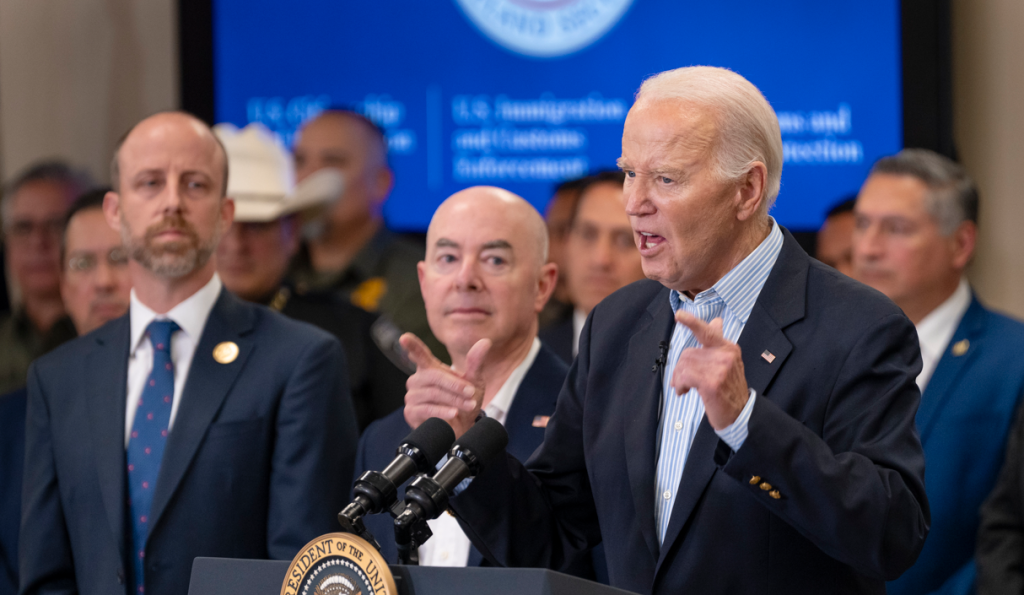The White House is pushing for a bipartisan border security bill that failed a test vote in February, which includes a mechanism to stop entries into the U.S. when encounters reach a certain level. Senate Majority Leader Chuck Schumer plans to bring the bill to the floor again, but it is expected to face stiff GOP opposition. The bill aims to mandate expulsions of migrants when migration levels exceed 5,000 a day and provide additional asylum work permits and resources at the border. The Biden administration supports the bill and accuses Republicans of rejecting it for political reasons.
President Biden has prioritized cracking down on fentanyl smuggling, and the legislation is seen as a crucial step in combating the illicit drug being smuggled across the border. The bill includes funding for detecting fentanyl in vehicles attempting to cross into the U.S. and hiring new law enforcement personnel to prevent its entry. The White House accuses Republicans of siding with fentanyl traffickers by opposing the bill and emphasizes the importance of stopping the spread of the deadly drug to save innocent lives.
Republicans have united against the bill, rejecting claims that their opposition is politically motivated and arguing that the bill would only perpetuate the existing border crisis. Senators like Ron Johnson and Mike Lee have criticized the bill for failing to secure the border and instead leading to increased illegal immigration. GOP leaders have called for the passage of border security legislation that would continue border wall funding and prevent parole processes into the U.S. They accuse Senate Democrats of trying to give cover to their vulnerable members with the reintroduction of the failed border bill.
The bill supported by Democrats aims to provide a temporary emergency border authority to reduce illegal migration levels and enhance border security measures. Despite the White House and Schumer backing the legislation, Republicans remain steadfast in their opposition, viewing the bill as ineffective in addressing the border crisis. The ongoing debate surrounding the bill highlights the deep partisan divide on the issue of immigration and border security, with both sides accusing the other of prioritizing political interests over the safety and security of the country.
The clash over the border security bill underscores the broader challenges faced in finding bipartisan solutions to complex issues like immigration. The White House’s accusations against Republicans of siding with fentanyl traffickers and Republicans’ criticisms of the bill as ineffective highlight the deep-rooted ideological differences between the two parties on border security. The upcoming Senate vote on the bill is likely to reignite tensions and further polarize the debate on immigration policy, with both sides digging in their heels and refusing to compromise on their positions.
As the debate over the border security bill continues, both Democrats and Republicans remain entrenched in their respective positions, making it challenging to find common ground on the issue of immigration. The bill’s failure to pass a test vote earlier this year and the anticipated opposition from Republicans in the upcoming Senate vote underscore the challenges of reaching bipartisan consensus on border security measures. The ongoing political wrangling over the bill reflects the broader divisions within Congress and the difficulty of finding solutions to complex issues like immigration that satisfy both parties.


